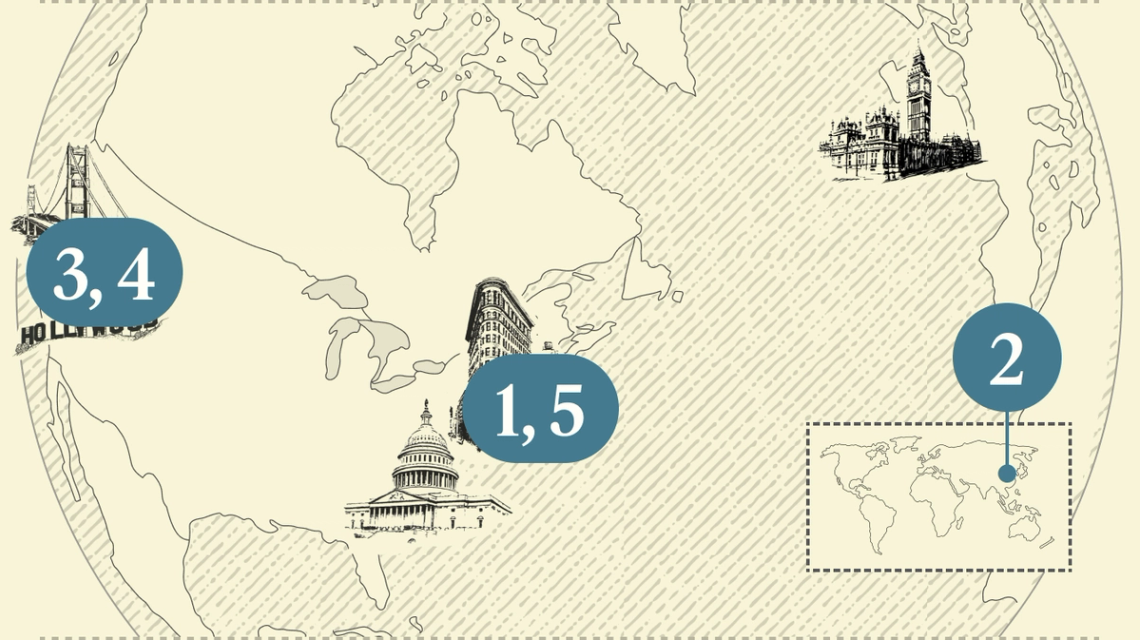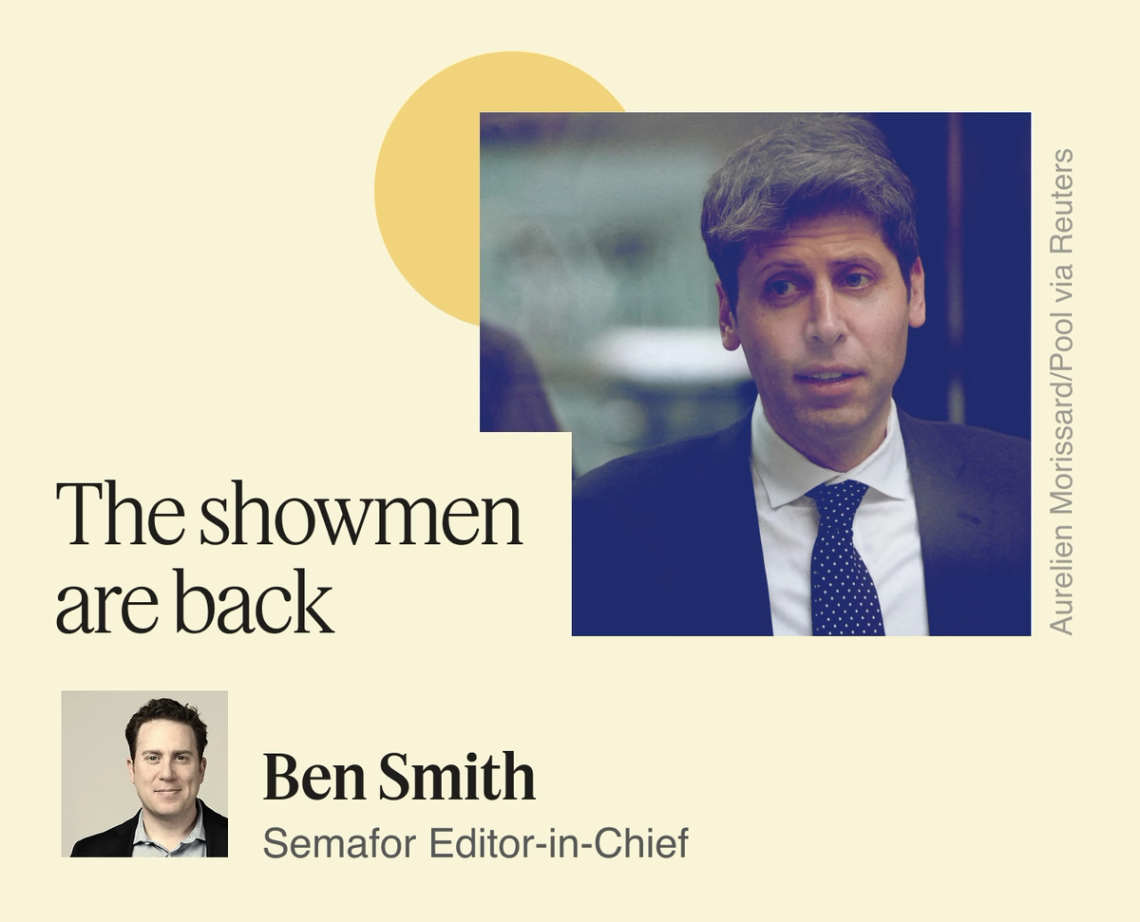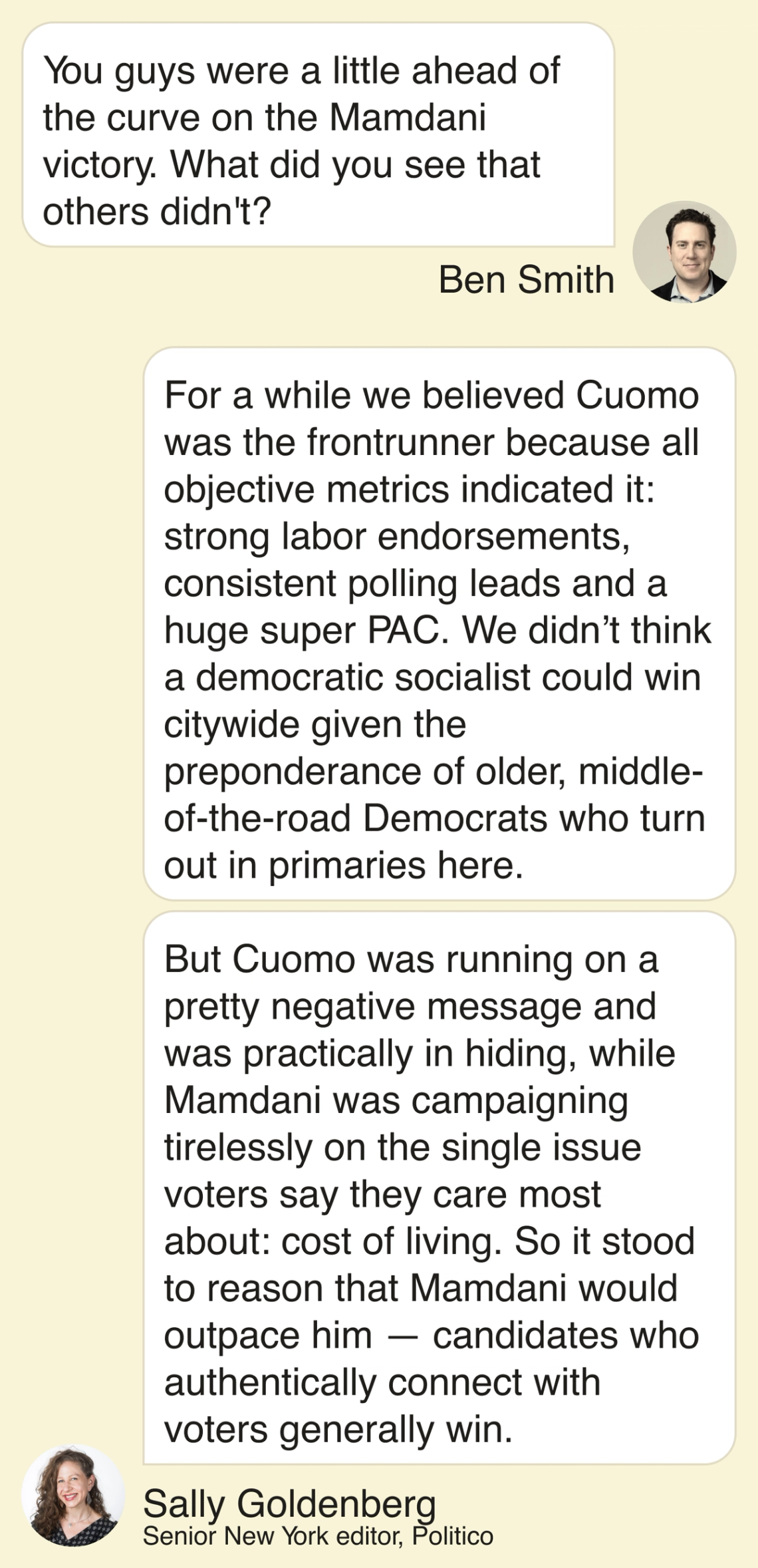| | In this edition: Zohran Mamdani vs. the New York Post.͏ ͏ ͏ ͏ ͏ ͏ |
| |   New York New York |   Beijing Beijing |   San Francisco San Francisco |
 | Media |  |
| |
|
 - Mamdani’s real opponent
- Barron’s China
- Newsom vs. Fox
- Advertising to bots
- Tradpop summer
|
|
 For a decade, factions of American public life have been radicalizing themselves against the news media. Silicon Valley tech leaders, Establishment Democrats, and new leftists and new rightists alike have developed elaborate theories about the corruption of the American press. They’ve spent more time fulminating about journalists than talking to them. And indeed, all the factions — Andreessen-Thiel, Cuomo-Harris, DSA and MAGA — have legitimate reasons for grievance against the woke/normalizing/corporate/liberal news media. But now that whole generation of political figures finds itself getting superseded by a new batch of leaders without those media hang-ups. In tech, classic, old-school gee-whiz figures led by OpenAI’s Sam Altman, but including Anthropic’s Dario Amodei and Google’s Demis Hassabis, have captivated the world. “Still love The New York Times!” Altman, the greatest showman, said at a Times live taping — after good-naturedly complaining that the Times had sued his company. Meanwhile, as Max reports today, Zohran Mamdani dominated the New York mayoral primary in part by cheerfully talking to anyone, including the implacably hostile New York Post. The more reclusive and mostly older generation, scarred and mumbling about old grievances, is getting circles run around it. So call us! Otherwise, we’re stuck talking to Sam and Zohran! And, of course, Donald Trump, who never for one minute made this particular mistake. Also today: A Murdoch expansion in China, “tradpop” summer, and ads for bot consumption. (Scoop count: 4) |
|
 David ‘Dee’ Delgado/Reuters David ‘Dee’ Delgado/ReutersZohran Mamdani swept the Democratic primary for New York City mayor last week thanks to a media strategy geared for 2025: lots of clever, short-form vertical videos, intense message discipline focused on affordability, and an openness to talking to anyone, from niche menswear fashion podcasts to legacy players. That includes the New York Post, the sharp-elbowed conservative tabloid owned by Rupert Murdoch. “We always knew we wanted to engage with even hostile media,” Mamdani’s communications director told Semafor. “We knew we would be something between a fascination and a menace for the Post.” When the Post ran headlines fearmongering about Mamdani, a Democratic socialist, his campaign reshared them as flattery. With former Gov. Andrew Cuomo’s concession in the Democratic primary, the Post may prove to be Mamdani’s most formidable opponent in November’s general election. The friction between Mamdani and the paper is an ideological battle over New York, but also a clash between an old-school paper and a savvy new-media figure. |
|
Dow Jones goes to China, quietly |
 Kevin Lamarque/Reuters Kevin Lamarque/ReutersRupert Murdoch’s long-dead dream of getting into the Chinese market is showing an unexpected flicker of life, with the relaunch Saturday of Barron’s China. This spring, Dow Jones announced plans (in Mandarin only, as noticed by Zichen Wang) to produce the publication with TMTPost, founded by the well-regarded Chinese business journalist Hejuan Zhao. The arrangement shifts a 2018 translation deal with the business outlet Caixin: Barron’s China will help “global investors understand the complex Chinese wealth and investment ecosystem, and also ensures that Chinese-speaking investors can get the best and most reliable information in their native language,” the announcement said, per a translation of CEO Almar Latour’s statement. The outlet launched Saturday, promising to not only be a “media brand, but also a bridge connecting China and the world, a fulcrum for the globalization of Chinese companies, and the preferred platform for global Chinese users to obtain high-quality financial content and resource networks.” A Dow Jones spokesperson said the relaunch “doesn’t reflect any sort of shifting view” and is simply a handoff: “We had a previous distribution partner for Barron’s China (Caijing) and when that partnership ended, we announced earlier this year a new partner (TMTPost) and the new site went live earlier this month. There’s nothing really more to it than that.” |
|
 Steve Inskeep has one of the most recognizable names and voices in the country, greeting millions of Americans every morning since the 2000s. This week, Ben and Max bring on the Morning Edition host to talk about NPR’s battle with the Trump administration, the role of public radio in an overcrowded media landscape, and why local journalism matters more than ever. They also discuss the conflict in Iran — a place that Steve has been to 6 times as a reporter — and whether Americans are less informed about global politics now than they were at the start of his career. Listen to the latest episode of Mixed Signals now. |
|
Newsom sues Fox for alleged defamation |
 Yuri Avila/Reuters Yuri Avila/ReutersGov. Gavin Newsom is going on offense against Fox News, suing the network over a segment in which host Jesse Watters said the California governor lied about a phone call with Donald Trump. It’s a curious move for Newsom, who has demonstrated a willingness to appear on Fox and engage with conservative media figures. It remains unclear how far the governor is willing to go with the lawsuit, which he is pursuing in his personal capacity. Newsom announced the lawsuit the same day as California released its budget, limiting his ability to promote it; the governor’s team made his lawyers available, but Newsom has not made extensive public comments about the effort. He’s asking for $787 million, almost exactly the same amount the network had to pay Dominion Voting Systems after Fox falsely accused it of rigging the 2020 election. |
|
Brave new advertising world |
 Christian Wiediger/Unsplash Christian Wiediger/Unsplash“AI doesn’t just change the way ads are formatted; it changes the nature of advertising itself,” Reed Albergotti wrote for Semafor this week: “Imagine describing a pair of shoes you want to buy to a voice assistant, which searches the web, perhaps using Google. It then describes the options and you instruct it to purchase one of them. If there is an ad in that scenario, it’s going to be seen by an AI agent and not a human… Google now needs to build a new industry that is equally complex, where lots of companies play a role in organizing information for AI agents and earn money on microtransactions that happen in fractions of a second while agents gather data. It’s kind of like advertising, but without the marketing appeals to human emotion that define what we think of advertising today. Credibility will become currency in this system.” |
|
‘Tradpop’ replaces brat summer |
 Alex Warren performs. Mario Anzuoni/Reuters Alex Warren performs. Mario Anzuoni/ReutersThe US political and media “vibe shift” has hit the music charts, as evidenced by the rise of songs that can best be categorized as “tradpop.” Alex Warren’s Ordinary, a contender for song of the summer, is a folksy, melodramatic ballad about faith and love. And once-canceled country-pop star Morgan Wallen reigns atop the US album charts. It’s a stark contrast from last summer, which was defined by the ascendance of boundary-pushing pop stars like Sabrina Carpenter, Chappell Roan, and Charli XCX, whose “brat summer” trend was even embraced by Kamala Harris’ presidential campaign. This new sound of pop music is part of a broader cultural and political reaction to Donald Trump’s return to power: Warren’s Ordinary went viral on TikTok as a wedding processional soundtrack — as the “tradwife” lifestyle is being increasingly espoused by younger conservative voices. — J.D. Capelouto |
|
Sally Goldenberg is the senior New York editor at Politico.  |
|
 Contrary to a wildfire Post rumor, a spox says Jeff Bezos did not take a break from his nuptials to personally order up a WaPo editorial board hit on Mamdani … Bari Weiss and Nellie Bowles are Instagramming from Venice, per a picture shared with us, but not commenting about whether they’re at the wedding …CNN fired a “forceful” letter back at Trump’s latest legal threats, but (unlike the Times) won’t share it …. Book critic Molly Young left her perch at the Times after four years “for reasons too dull to type”... Politico’s big CNN hire, Haley Thomas, has changed her mind and gone back to CNN, according to two sources, a minor setback to the news site’s video and podcast ambitions … Silver Tribe Media, one of the top new talent-centric media houses, has picked up former NPR and Freakonomics exec Neal Carruth as GM |
|
  Gary Gershoff/WireImage via Getty Gary Gershoff/WireImage via GettyThe insurance giant Allstate released a report last week warning that Americans’ trust in each other is “at a tipping point,” low enough to threaten the country’s democracy. But Allstate CEO Tom Wilson sees cause for optimism in the finding that people trust their neighbors more than other Americans on average. “It shows there’s |
|
|